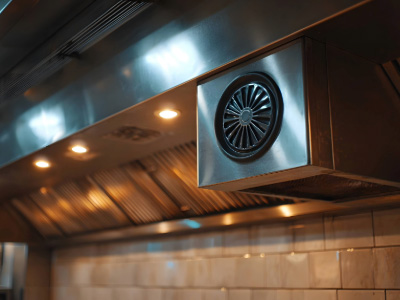What are Commercial Landlord Responsibilities in 2025?
Being a responsible commercial landlord requires ongoing effort and financial commitment.
.jpg)
As a commercial landlord, you have essential legal duties to keep your buildings safe and healthy for everyone who uses them. These responsibilities extend beyond collecting rent and fixing broken windows – they encompass serious health and safety requirements that protect both tenants and their employees.
What are Commercial Landlord Responsibilities in 2025?
Understanding these duties isn't just about avoiding fines. It's about protecting your investment, maintaining good relationships with tenants, and ensuring your properties stay profitable.
Your Primary Legal Duties
Commercial landlords must adhere to numerous regulations designed to ensure the safety of people in buildings. The Health and Safety at Work Act 1974 says landlords must ensure their buildings are as secure as possible. This covers everything from strong structures to clean air.
Other important rules focus on specific building systems. For example, workplace regulations require good ventilation, while fire safety rules demand proper fire protection measures. These aren't just paperwork exercises – they save lives.
Your primary responsibilities include:
• Keeping all building systems working safely
• Doing regular safety checks
• Making sure fresh air flows through the property
• Keeping good maintenance records
• Fixing problems quickly when you find them
• Providing safe ways in and out of buildings
Ventilation and Air Quality
The indoor environment of the commercial building impacts tenant satisfaction and legal compliance. Bad air quality doesn't just smell unpleasant - it can make people sick and land you in legal trouble. This is where working with specialists proves most beneficial.
Ventilation systems need regular checks and cleaning to work properly. When ignored, these systems collect dust, grease, and germs that spread throughout buildings. These risks are even greater in an industrial environment due to the additional processes and pollutants.
Kitchen extract cleaning is essential. Commercial kitchens create greasy vapours that coat ductwork and cause serious fire risks. Industry guidelines recommend how often to clean based on the frequency of kitchen use. Busy kitchens may require cleaning every three months, while quieter ones may manage with twice-yearly cleaning.
Fire Safety Requirements
Fire safety means more than having alarms and fire extinguishers. Dampers are crucial in fire protection. These devices stop fire and smoke from spreading through ventilation systems, giving people time to escape. But dampers only work when they're correctly maintained.
Most commercial buildings require fire damper testing every year. During tests, qualified technicians check that dampers close properly and reset correctly. Broken dampers require immediate attention, as they pose a significant risk to the entire building.
Regular testing also identifies dampers that require remedial work. Common problems include:
• Rusty or damaged parts
• Broken springs or motors
• Blockages stopping proper closure
• Missing access panels
Special Ventilation Needs
Other types of ventilation are needed in different areas of commercial properties. Workshops and factories often need Local Exhaust Ventilation (LEV) systems to remove harmful substances right where they're created. LEV cleaning ensures that these safety systems remain functional.
Health and safety rules require thorough testing of LEV systems every 14 months. Between these official tests, regular cleaning keeps systems working well and prevents dangerous buildups.
Meeting All the Rules
CVC compliance involves coordinating all ventilation requirements within a single program. This approach ensures that nothing is missed while causing less disruption for tenants.
Key compliance areas include:
• Yearly fire damper testing
• Ventilation cleanliness checks
• Kitchen extract clean schedules
• Air quality testing
• Keeping all the proper paperwork
Good record-keeping proves you're following the rules and protects you from lawsuits. Keep detailed notes about all maintenance work, test results, and any fixes you make.
Working with Tenants
Clear communication with tenants about who is responsible for what maintenance prevents arguments and keeps things running smoothly. While landlords usually handle major systems, leases should clearly specify who is responsible for each part of the building.
Planning maintenance involves working closely with tenants to minimise disruptions to their business. Good service providers understand this and offer flexible timing. Evening and weekend work allows you to perform essential maintenance without disrupting daily business.
Finding the Right Help
Modern building systems are complex, and the rules are constantly changing. Most landlords benefit from working with professional maintenance companies. Experienced providers like System Hygienics Ltd handle all aspects of ventilation compliance, from regular cleaning to major remedial works.
When choosing service partners, look for:
• Experienced national-based teams
• Experience with buildings like yours
• Complete service offerings
• Clear, detailed reports
• Emergency help when needed
Protecting Your Investment
Being a responsible commercial landlord requires ongoing effort and financial commitment. However, regular maintenance costs much less than emergency repairs, fines, or lawsuits. Well-maintained properties attract better tenants, earn higher rents, and maintain their value.
Smart landlords also build strong relationships with their service providers. When emergencies happen – and they will – having trusted professionals who know your buildings makes all the difference. They can respond quickly, fix problems efficiently, and help you avoid costly downtime for your tenants.
By working with qualified professionals and maintaining your buildings, you protect your investment and the people who use them every day. Your tenants trust you to provide safe, healthy spaces, and meeting that responsibility means successful property ownership for years to come.


.png)
.png)